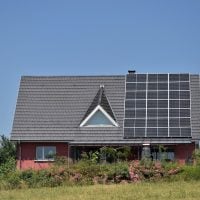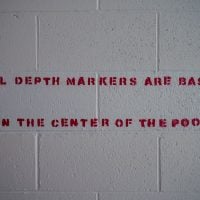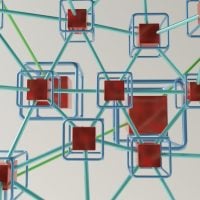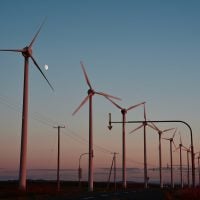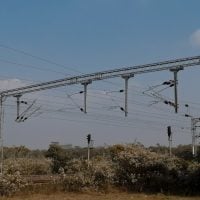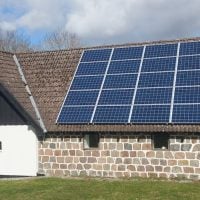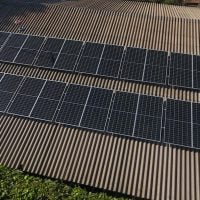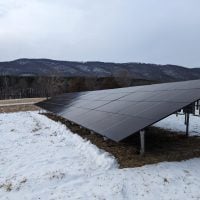In the realm of renewable energy, donor networks play a pivotal role in facilitating funding and support for various initiatives. These networks consist of individuals, foundations, corporations, and governmental entities that are committed to promoting sustainable energy solutions. The importance of these networks cannot be overstated; they provide not only financial resources but also strategic guidance, networking opportunities, and access to a wealth of knowledge and expertise.
For NGOs working in renewable energy, understanding the dynamics of donor networks is crucial for securing the necessary resources to implement impactful projects. Moreover, donor networks often serve as a bridge between innovative ideas and the capital needed to bring them to fruition. They can help identify promising technologies and initiatives that align with their funding priorities, thus creating a symbiotic relationship where both parties benefit.
By tapping into these networks, NGOs can amplify their reach and effectiveness, ensuring that their projects not only receive funding but also gain visibility and credibility within the broader renewable energy landscape. This understanding lays the groundwork for NGOs to strategically engage with donor networks, ultimately leading to more successful and sustainable energy initiatives. Are You Working on Solar Innovation or Clean Energy Access? Join us to receive updates.
Key Takeaways
- Donor networks play a crucial role in advancing renewable energy initiatives by providing funding and support.
- Key players in the renewable energy donor network include government agencies, non-profit organizations, and private foundations.
- Building strong relationships with donor networks is essential for accessing funding and resources for renewable energy projects.
- Donor networks can be leveraged to identify funding opportunities and access resources for renewable energy initiatives.
- Collaborating with donor networks is vital for advancing renewable energy projects and maximizing their impact.
Identifying Key Players in the Renewable Energy Donor Network
To effectively engage with donor networks, NGOs must first identify the key players within these ecosystems. This involves researching various foundations, government agencies, corporate social responsibility (CSR) programs, and individual philanthropists who have a vested interest in renewable energy. Organizations like the Global Environment Facility (GEF), the Green Climate Fund (GCF), and numerous private foundations are often at the forefront of funding renewable energy projects.
By understanding their funding priorities and application processes, NGOs can tailor their proposals to align with these interests. In addition to large foundations and government entities, local businesses and community organizations can also be significant players in the donor network. These stakeholders may be more accessible and willing to support grassroots initiatives that resonate with their values or business objectives.
Engaging with local chambers of commerce or industry associations can provide insights into potential funding sources that may not be on the radar of larger NGOs. By mapping out the landscape of potential donors, organizations can create a targeted approach that maximizes their chances of securing funding.
Building Relationships with Donor Networks in Renewable Energy

Once key players have been identified, the next step is to build meaningful relationships with them. Establishing trust and rapport is essential for fostering long-term partnerships that can lead to sustained funding and support. This process begins with open communication; NGOs should reach out to potential donors with personalized messages that highlight shared values and goals.
Attending networking events, workshops, and conferences can also provide opportunities for face-to-face interactions, allowing NGOs to showcase their work and engage in meaningful conversations. Building relationships is not just about seeking funding; it’s about creating a dialogue that fosters collaboration and mutual understanding. NGOs should actively listen to the interests and concerns of their potential donors, adapting their approaches based on feedback received.
Regular updates on project progress, challenges faced, and successes achieved can help keep donors engaged and invested in the organization’s mission. By nurturing these relationships over time, NGOs can create a solid foundation for future collaborations that extend beyond mere financial transactions.
Leveraging Donor Networks for Funding Opportunities
Once relationships are established, NGOs can leverage donor networks to uncover various funding opportunities. Many donor networks have specific grant cycles or funding initiatives that align with particular themes or projects. By staying informed about these opportunities through newsletters, webinars, or direct communication with donors, NGOs can position themselves to apply for relevant grants at the right time.
Additionally, some donor networks may offer capacity-building resources or technical assistance that can enhance an NGO’s ability to implement successful projects. Furthermore, collaborating with other organizations within the donor network can open doors to joint funding opportunities. Many donors prefer to support collaborative projects that demonstrate a collective impact rather than isolated efforts.
By partnering with other NGOs or stakeholders in the renewable energy sector, organizations can present a more compelling case for funding that highlights shared goals and broader community benefits. This collaborative approach not only increases the chances of securing funding but also fosters a sense of community within the donor network.
Collaborating with Donor Networks to Advance Renewable Energy Initiatives
Collaboration is a powerful tool in advancing renewable energy initiatives through donor networks. By working together with other organizations, NGOs can pool resources, share knowledge, and amplify their impact. Collaborative projects often attract more attention from donors because they demonstrate a unified approach to addressing complex challenges in the renewable energy sector.
For instance, an NGO focused on solar energy might partner with another organization specializing in energy efficiency to create a comprehensive program that addresses both generation and consumption. Moreover, collaboration can lead to innovative solutions that may not have been possible through individual efforts alone. By bringing together diverse perspectives and expertise, organizations can develop more effective strategies for implementing renewable energy projects.
This collaborative spirit not only enhances project outcomes but also strengthens relationships within the donor network, as organizations work together towards common goals. Ultimately, fostering collaboration can lead to more sustainable and impactful renewable energy initiatives.
Communicating the Impact of Renewable Energy Projects to Donor Networks

Effectively communicating the impact of renewable energy projects is essential for maintaining donor engagement and support. NGOs must articulate not only what they do but also how their initiatives contribute to broader environmental and social goals. This involves collecting data on project outcomes, such as reductions in carbon emissions, increases in energy access, or improvements in community well-being.
By presenting this information in a clear and compelling manner, organizations can demonstrate their value to potential donors. Storytelling is another powerful tool for communicating impact. Sharing personal stories from beneficiaries or showcasing before-and-after scenarios can help donors connect emotionally with the work being done.
Visual content such as videos or infographics can further enhance these narratives by making complex data more accessible and engaging. By consistently highlighting the positive outcomes of their projects, NGOs can reinforce their credibility and inspire continued support from donor networks.
Engaging with Donor Networks through Events and Conferences
Events and conferences provide invaluable opportunities for NGOs to engage directly with donor networks. These gatherings often attract key stakeholders from various sectors who are interested in renewable energy solutions. By participating in panel discussions, workshops, or networking sessions, NGOs can showcase their expertise while also learning from others in the field.
This face-to-face interaction fosters deeper connections that can lead to future collaborations or funding opportunities. Additionally, hosting events can position an NGO as a thought leader within the renewable energy space. Organizing workshops or seminars on relevant topics not only demonstrates expertise but also creates a platform for dialogue among stakeholders.
Inviting donors to participate in these events allows them to see firsthand the impact of their support while also providing valuable networking opportunities for all involved. Engaging through events helps solidify relationships within donor networks while promoting a culture of collaboration.
Utilizing Social Media and Online Platforms to Connect with Donor Networks
In today’s digital age, social media and online platforms are essential tools for connecting with donor networks. NGOs should leverage platforms like LinkedIn, Twitter, and Facebook to share updates about their projects, highlight success stories, and engage with potential donors. Regularly posting content that showcases the organization’s mission and impact can help build an online presence that attracts attention from interested parties.
Moreover, online platforms offer opportunities for direct engagement through webinars or virtual events. Hosting online discussions on relevant topics allows NGOs to reach a wider audience while providing valuable insights into their work. Engaging with followers by responding to comments or sharing relevant articles fosters a sense of community around the organization’s mission.
By utilizing social media effectively, NGOs can expand their reach within donor networks while building relationships that transcend geographical boundaries.
Showcasing Success Stories to Donor Networks
Success stories are powerful tools for demonstrating the effectiveness of renewable energy projects to donor networks. By highlighting specific examples of how their initiatives have made a difference—whether through increased access to clean energy or improved livelihoods—NGOs can create compelling narratives that resonate with potential funders. These stories should include quantitative data as well as qualitative testimonials from beneficiaries to provide a well-rounded view of impact.
Additionally, showcasing success stories through various mediums—such as videos, case studies, or blog posts—can enhance visibility and engagement. Sharing these stories across social media platforms or during networking events allows organizations to reach a broader audience while reinforcing their credibility within donor networks. By consistently highlighting achievements and lessons learned from past projects, NGOs can build trust and inspire confidence among potential donors.
Seeking Mentorship and Guidance from Established Donor Networks
For NGOs looking to navigate the complexities of donor networks effectively, seeking mentorship from established organizations can be invaluable. Many successful NGOs have built strong relationships within donor networks over time and possess insights that can help newer organizations avoid common pitfalls. By reaching out for guidance or mentorship opportunities, NGOs can gain access to valuable resources and advice on best practices for engaging with donors.
Mentorship can take various forms—whether through formal programs or informal connections made during networking events. Established organizations may offer workshops or training sessions focused on grant writing, project management, or relationship-building strategies tailored specifically for engaging with donor networks in renewable energy. By learning from those who have successfully navigated these waters before them, newer NGOs can enhance their capacity to secure funding and support for their initiatives.
Nurturing Long-Term Partnerships with Donor Networks for Sustainable Impact
Finally, nurturing long-term partnerships with donor networks is essential for achieving sustainable impact in renewable energy initiatives. Building trust takes time; therefore, organizations must prioritize ongoing communication and engagement with their donors even after securing funding. Regular updates on project progress, challenges faced, and future plans help keep donors informed while reinforcing their commitment to supporting the organization’s mission.
Additionally, expressing gratitude through personalized thank-you notes or recognition at events fosters goodwill among donors and encourages continued support. Long-term partnerships often lead to increased funding opportunities as donors become more invested in an organization’s success over time. By cultivating these relationships thoughtfully and consistently demonstrating impact through transparent communication practices, NGOs can ensure sustained support from donor networks that ultimately drives meaningful change in the renewable energy sector.
In conclusion, engaging effectively with donor networks is crucial for NGOs working in renewable energy. By understanding the importance of these networks, identifying key players, building relationships, leveraging opportunities for collaboration, communicating impact effectively, utilizing digital platforms for engagement, showcasing success stories, seeking mentorship from established organizations, and nurturing long-term partnerships—NGOs can significantly enhance their capacity to secure funding and drive sustainable change in the renewable energy landscape.



